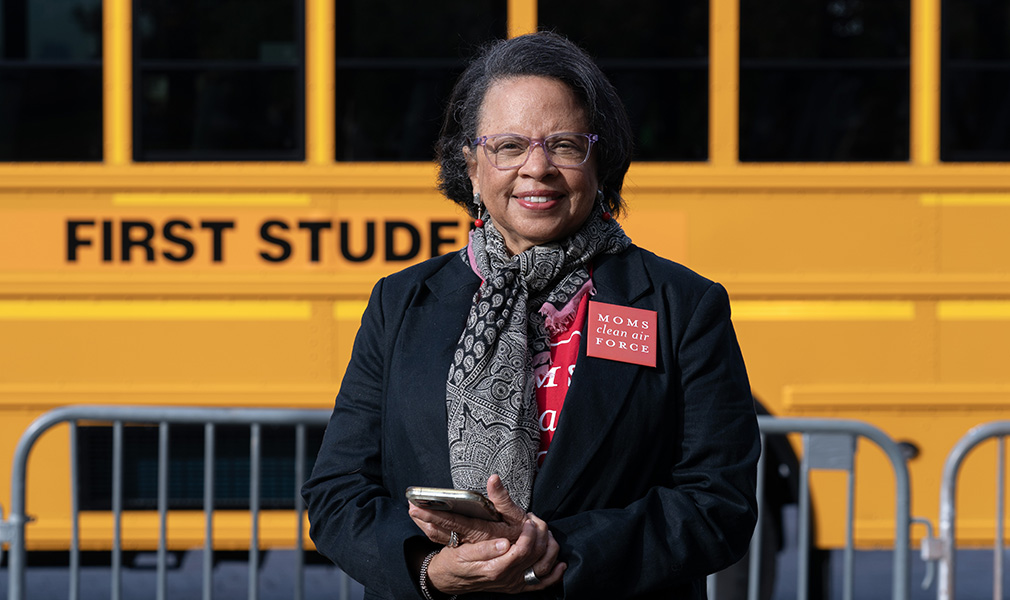
In honor of Black History Month, Moms Clean Air Force recently convened a Coffee and Climate Conversation about health equity and climate justice. This event was part of a monthly series of informal climate conversations Moms hosts over Zoom to connect our staff with volunteers across the country.
During the conversation last Thursday afternoon, this month’s speaker, Almeta Cooper, Moms’ National Manager for Health Equity, gave a crucial statistic: while 70% of people in the U.S. acknowledge climate disruption, many fail to recognize how it disproportionately affects children of color. She then linked this to health equity:
“Health equity is an integral part of advocating for children’s health and clean air. Not all children are affected equally by climate disruption. Black, Brown, and children in under-resourced communities are harmed more than others.”
Almeta went on to highlight Moms’ commitment to justice in every breath. This commitment translates into programs like EcoMadres, which addresses climate impacts on Latino families, and our work with Indigenous communities and the National Tribal Air Association.
To help participants understand the terminology used to describe disproportionate health and climate impacts, Almeta shared definitions from luminaries in the field.
- Environmental justice: “All people and communities have a right to equal protection and equal enforcement of environmental laws and regulations.” —Dr. Robert Bullard, Father of Environmental Justice
- Health equity: “The assurance of the condition of optimal health for all people.” —Dr. Camara Jones
- Health justice: “When health, equity, and justice are applied equally to every person.” —Emily A. Benfer
Almeta also shared an example of her own environmental and health justice work: helping bring electric school buses to communities overburdened by air pollution:
“Brown, Black, and under-resourced communities—they also deserve to have clean air… We don’t want any child to ride a bus with fossil fuels spewing from the tailpipe. Those fumes are carcinogenic,” she said.
In her work for Moms, Almeta organizes health equity panels, gives testimony before EPA and Congress, and seeks partnerships and collaborations with similar organizations. Her goal is to expand awareness that health equity is related to climate change and that health inequity has historical roots in systemic racism.
Almeta outlined actionable steps for advocacy during the Coffee and Climate Conversation, reiterating that every voice we bring to health equity and climate justice is important. She encouraged participants to support clean air, children’s health, and health equity by signing a petition, contacting elected officials, and getting involved with Moms or other climate organizations.
During a lively Q&A, audience members posed insightful questions about how to talk to kids about climate change and get involved in local environmental justice efforts. Moms team members in attendance provided guidance, emphasizing the importance of maintaining hope and positivity when discussing climate change with children and offering to make connections to kickstart local advocacy.
The conversation concluded on an empowering note, leaving participants newly aware of the connection between environmental justice and health equity and inspired to take action.
Join Moms for our next Coffee and Climate Conversation on March 14 when Isabel González Whitaker, our Associate Vice President for Public Engagement, will be taking a look at the history of Moms’ work.




